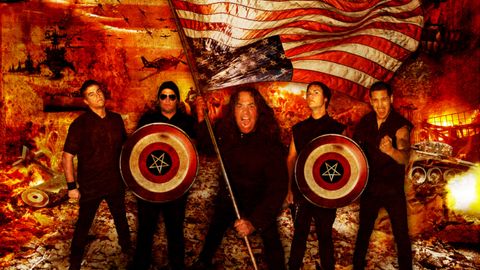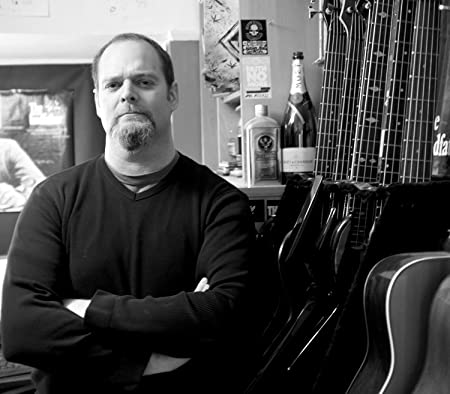Even after three decades, there’s still something thrilling and compelling about the original Bay Area thrash metal sound. Maybe it’s the slightly tinny production, the shrieky vocals, the well-metered drums or the amazing shredding, all of which are trademarks of the original Exodus/Death Angel/Testament archetype and the Forbidden/Vio-Lence style that followed.
All these trademarks are present in abundance on Hatriot’s excellent debut album, Heroes Of Origin. This isn’t particularly surprising when you consider the fact that the band were founded by singer Steve ‘Zetro’ Souza, the sometime member of Legacy (before they became Testament) and Exodus.
Souza’s Gollum-style wails about offing people, warfare and the death of society are the perfect accompaniment to the impressively meaty riffing and warp-speed tempos of the music. It’s not all fast stuff, though. In the spirit of every thrash metal album to be released since Slayer’s South Of Heaven, there are also spooky, moody riffs aplenty, all of which are designed to creep your grandmother out. A perfect case in point is And Your Children To Be Damned, which is a mostly un-thrash cut showcasing Hatriot’s impressive grasp of the concept of heaviness, rather than merely speed.
All in all, Heroes Of Origin proves to be a memorable offering from the oldest of the old guard, and a hugely successful nod to the spirit of 1986 for anyone who missed out the first time round.


